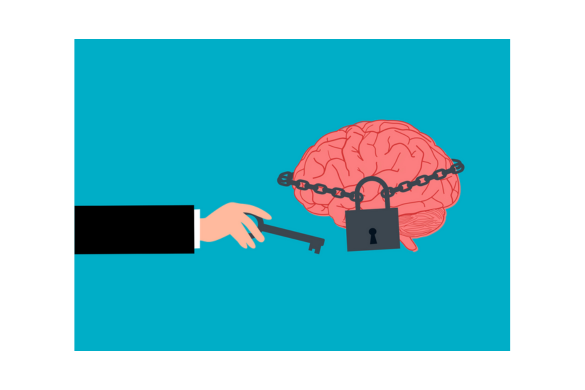Ever feel like everyone’s talking about “mental health awareness” but no one actually explains what it is? Yeah, same here.
It’s like this big, important thing that sometimes gets lost in a sea of buzzwords.
So, let’s break it down. Mental health awareness isn’t just about knowing the difference between anxiety and depression (though that’s definitely part of it!). It’s about realizing that our mental well-being is just as important as our physical health. It’s about ditching the shame and stigma that often surround mental health struggles and creating a world where we can all talk openly about how we’re really doing.
Think of it like this: we all have mental health, just like we all have physical health. And just like we need to take care of our bodies, we need to take care of our minds too.
Ready to dive deeper? Let’s explore what mental health awareness really means, why it matters, and how we can all play a part in creating a more supportive and understanding world.
What is Mental Health?
Mental health refers to the emotional, psychological, and social aspects of an individual’s well-being. It influences cognition, perception, and behavior, determining how we handle stress, relate to others, and make decisions. Mental health is critical at every stage of life, from childhood and adolescence through adulthood.

Mental health encompasses:
- Emotional health: The ability to manage emotions, respond to situations, and process emotional experiences in a constructive manner.
- Psychological well-being: How well a person copes with daily life, adapts to change, and develops a positive sense of self-worth.
- Social well-being: How we form relationships, communicate, and maintain social bonds with others.
Common Mental Health Disorders
Mental health conditions are common and affect people from all walks of life. The World Health Organization (WHO) estimates that 1 in 4 people worldwide will experience a mental health issue at some point in their lives. Below are some common mental health conditions:
- Depression: Characterized by persistent sadness, loss of interest in activities, and a lack of energy. Depression can affect sleeping, eating, and daily functioning.
- Anxiety Disorders: These include generalized anxiety disorder (GAD), panic disorder, social anxiety disorder, and specific phobias. Anxiety disorders involve intense fear, worry, and physical symptoms like sweating, trembling, or palpitations.
- Bipolar Disorder: A mental health condition marked by extreme mood swings that include emotional highs (mania or hypomania) and lows (depression).
- Schizophrenia: A severe mental disorder where individuals may experience distorted thinking, hallucinations, delusions, and disorganized behavior. It affects the ability to function and interpret reality.
- Post-Traumatic Stress Disorder (PTSD): A disorder that develops after a person has experienced or witnessed a traumatic event. It can cause flashbacks, nightmares, and severe anxiety.
- Obsessive-Compulsive Disorder (OCD): A condition where individuals experience recurring, unwanted thoughts (obsessions) and engage in repetitive behaviors (compulsions) to relieve anxiety.
- Eating Disorders: These include anorexia nervosa, bulimia nervosa, and binge-eating disorder, which involve unhealthy attitudes toward food, body weight, and shape.
The Importance of Mental Health Awareness
Despite growing recognition of the importance of mental health, it remains significantly under-addressed globally. Awareness is a critical factor in breaking the silence and stigma surrounding mental health issues. Here are some key reasons why mental health awareness is essential:
1. Breaking Stigma
One of the greatest barriers to addressing mental health problems is the stigma attached to them. Many people avoid seeking help due to fear of being judged, ridiculed, or discriminated against. This stigma can be internal (shame, embarrassment) or external (judgment from society). Raising awareness helps normalize mental health discussions, allowing individuals to share their experiences without shame.
For example, consider how depression is often misunderstood. People may tell someone with depression to “cheer up” or “just think positively,” without recognizing that depression is a complex mental health condition that often requires professional intervention. Awareness efforts can educate the public, reducing harmful misconceptions and fostering a more supportive environment for those affected.

2. Early Detection and Intervention
Many mental health disorders go undiagnosed and untreated for years, leading to worsening symptoms and a reduced quality of life. By raising awareness, individuals can learn to recognize early warning signs of mental health issues in themselves or their loved ones.
For example, a person might start noticing persistent sadness, changes in appetite, sleep disturbances, or withdrawal from social activities—symptoms of depression. Early detection increases the likelihood of successful treatment, as interventions can prevent the condition from worsening.
3. Improving Access to Treatment
Mental health awareness also plays a critical role in improving access to treatment. Many individuals are unaware of the resources available to them, or they may not know how to seek help. Public campaigns, community programs, and educational materials can inform individuals about therapy, counseling, medication, and support groups that may benefit their mental well-being.
For instance, some countries have helplines or online resources that provide anonymous mental health support. Raising awareness about these resources can make a difference in someone’s life, particularly for individuals who might not feel comfortable talking about their struggles with friends or family.
4. Promoting Mental Health in the Workplace
Workplaces are often environments where mental health issues are overlooked or even exacerbated. Stress, long hours, and poor work-life balance can contribute to conditions like burnout, anxiety, or depression. Mental health awareness in the workplace promotes healthier working conditions, encourages open dialogue, and provides resources to employees who may need help.
Employers can offer mental health days, access to counseling services, and training for managers on how to recognize and address mental health concerns. This not only benefits employees but also improves overall productivity, job satisfaction, and workplace culture.
5. Fostering a Supportive Community
Awareness efforts help create communities that support those struggling with mental health issues. By normalizing mental health discussions, individuals feel more comfortable seeking help, knowing that they are not alone in their struggles. Community-based programs and mental health initiatives can also provide safe spaces for individuals to share their experiences and receive support.
For example, schools can provide mental health education to students, helping them understand their emotions, manage stress, and develop coping skills. Likewise, community centers can offer group therapy, mindfulness workshops, and other mental health services to promote well-being.
READ MORE: What Is The Social Hub: A Social Media Guide
Mental Health Myths and Facts
Despite advances in mental health awareness, myths and misconceptions still persist. Debunking these myths is essential for fostering understanding and compassion for individuals affected by mental health issues.
Myth 1: Mental health issues are not real illnesses.
- Fact: Mental health disorders are real, diagnosable conditions that affect the brain and body. Just like physical illnesses such as diabetes or asthma, mental health conditions require treatment and care.
Myth 2: People with mental health disorders are violent or dangerous.
- Fact: Most individuals with mental health conditions are not violent. In fact, they are more likely to be victims of violence than to perpetrate it. This misconception contributes to the stigma surrounding mental illness.
Myth 3: Mental health problems are a sign of weakness.
- Fact: Mental health issues have nothing to do with personal strength or character. Many factors contribute to the development of mental health disorders, including genetics, environment, trauma, and biology. Seeking help is a sign of strength, not weakness.

Myth 4: Therapy is only for people with serious mental health conditions.
- Fact: Therapy can benefit anyone, not just those with diagnosed mental health disorders. Many people seek therapy for everyday issues like stress, relationship problems, or personal growth.
Myth 5: Mental health conditions only affect adults.
- Fact: Children and adolescents can experience mental health conditions just as adults can. Early intervention is crucial in addressing childhood mental health issues, which can have long-term effects on development and functioning.
The Impact of Culture and Society on Mental Health
Cultural and societal factors can significantly influence mental health outcomes. Each culture has its own beliefs, values, and attitudes toward mental health, which can affect how individuals perceive and respond to mental health challenges.
1. Cultural Stigma
In many cultures, mental health issues are seen as a source of shame or taboo. Individuals may feel pressured to suppress their feelings or avoid seeking help due to fear of being ostracized by their community. This can lead to delays in diagnosis and treatment, worsening the individual’s condition.
For example, in some Asian cultures, mental health issues are often viewed as personal failures or a lack of willpower. Individuals may fear bringing dishonor to their family if they admit to struggling with mental health challenges. In such cases, culturally sensitive mental health services are crucial for encouraging individuals to seek help without fear of judgment.
2. Social Determinants of Mental Health
Mental health does not exist in a vacuum; it is influenced by a range of social, economic, and environmental factors known as social determinants of health. These determinants include poverty, unemployment, education, access to healthcare, and living conditions.
For example, individuals living in poverty may face chronic stress due to financial insecurity, lack of access to basic needs, and limited opportunities for upward mobility. These stressors can contribute to the development of mental health conditions like anxiety and depression. Addressing social determinants of mental health is critical for improving overall well-being and reducing disparities in mental health outcomes.
3. Media and Mental Health
The media plays a powerful role in shaping public perceptions of mental health. Unfortunately, mental health issues are often sensationalized or portrayed inaccurately in movies, television shows, and news outlets. These portrayals can perpetuate stereotypes and contribute to the stigma surrounding mental health.
For example, characters with mental health conditions are often depicted as violent, unstable, or unpredictable, which reinforces harmful myths. Media outlets can play a positive role by portraying mental health issues accurately, highlighting stories of recovery, and providing information about available resources.
Addressing the Global Mental Health Crisis
The global mental health crisis is a pressing issue that requires urgent action from governments, healthcare providers, and communities. According to the WHO, depression is the leading cause of disability worldwide, and suicide is the second leading cause of death among individuals aged 15 to 29. Despite the growing burden of mental health disorders, many countries still lack adequate mental health care services.
1. Investment in Mental Health Care
One of the biggest challenges in addressing the global mental health crisis is the lack of investment in mental health care. Many countries allocate only a small percentage of their healthcare budget to mental health, leading to shortages of mental health professionals, facilities, and resources.
Increasing funding for mental health services is essential for improving access to care, reducing wait times, and ensuring that individuals receive timely and appropriate treatment. Governments should prioritize mental health as a critical component of overall health and well-being.
2. Integration of Mental Health into Primary Care
Mental health care should be integrated into primary care settings to ensure that individuals receive comprehensive and holistic care. Many individuals seek help for mental health issues from their primary care providers, making it important for these providers to have the training and resources to address mental health concerns.
For example, primary care providers can screen patients for common mental health conditions like depression and anxiety, provide counseling or medication, and refer patients to mental health specialists when needed. Integrating mental health into primary care can also reduce the stigma associated with seeking mental health treatment.

3. Expanding Telehealth Services
Telehealth services have the potential to revolutionize mental health care by making it more accessible and convenient for individuals, particularly in underserved or rural areas. With the rise of digital technology, individuals can access therapy, counseling, and mental health support through online platforms, reducing the barriers to care.
During the COVID-19 pandemic, telehealth services played a critical role in providing mental health care to individuals who could not access in-person services. As we move forward, expanding telehealth services can help bridge the gap in mental health care and ensure that individuals receive the support they need.
4. Promoting Mental Health Education
Mental health education should be a priority in schools, workplaces, and communities. By teaching individuals about mental health, coping skills, and how to seek help, we can empower people to take control of their mental well-being and reduce the stigma surrounding mental health issues.
Schools, in particular, play a critical role in promoting mental health education. Incorporating mental health into the curriculum can help students develop emotional intelligence, resilience, and self-awareness. Additionally, schools can provide mental health resources, such as counseling services, to support students’ well-being.
Strategies for Improving Mental Health and Well-Being
While professional treatment is essential for individuals with mental health disorders, there are also everyday strategies that individuals can use to promote mental health and well-being. Below are some evidence-based strategies for maintaining good mental health:
1. Practice Mindfulness and Meditation
Mindfulness and meditation are powerful tools for managing stress, improving focus, and promoting emotional well-being. Mindfulness involves paying attention to the present moment without judgment, while meditation is a practice that helps calm the mind and relax the body.
Research has shown that mindfulness and meditation can reduce symptoms of anxiety and depression, improve sleep, and enhance overall well-being. Incorporating mindfulness practices into daily life can help individuals better manage stress and develop a more positive outlook on life.
2. Exercise Regularly
Physical activity is not only good for the body but also for the mind. Regular exercise has been shown to reduce symptoms of depression and anxiety, improve mood, and boost self-esteem. Exercise releases endorphins, which are chemicals in the brain that promote feelings of happiness and well-being.
Whether it’s going for a walk, doing yoga, or hitting the gym, finding a form of physical activity that you enjoy can have a positive impact on your mental health.
3. Maintain a Healthy Diet
The food we eat can have a significant impact on our mental health. A diet rich in fruits, vegetables, whole grains, and lean proteins can provide the nutrients the brain needs to function optimally. On the other hand, a diet high in processed foods, sugar, and unhealthy fats can contribute to mental health issues like anxiety and depression.
Eating a balanced diet that supports both physical and mental health is essential for overall well-being.

4. Get Enough Sleep
Sleep plays a crucial role in mental health. Poor sleep can contribute to mood disorders, irritability, and difficulty concentrating. In contrast, getting enough restful sleep helps regulate emotions, improve cognitive function, and reduce stress.
Adults should aim for 7-9 hours of sleep per night, while children and adolescents may need more. Establishing a consistent sleep routine and creating a relaxing bedtime environment can improve sleep quality and support mental well-being.
5. Connect with Others
Strong social connections are vital for mental health. Having a support system of family, friends, or community members can provide emotional support, reduce feelings of isolation, and improve overall well-being.
Taking the time to nurture relationships, reach out to loved ones, and engage in social activities can boost mental health and provide a sense of belonging.
Ready to Moving Forward with Mental Health Awareness?
Mental health awareness is more important than ever as we face the growing global burden of mental health disorders. By breaking the stigma, promoting early detection, improving access to treatment, and fostering supportive communities, we can create a world where mental health is valued, understood, and prioritized.
Every individual has a role to play in raising mental health awareness. Whether it’s educating ourselves and others, supporting loved ones, or advocating for better mental health policies, we can all contribute to a more compassionate and informed society. As we move forward, let’s continue to prioritize mental health and work toward a future where everyone has access to the care and support they need to thrive.
You might also be interested in – How to Decode the Power of Good Speech: An Informative Guide


